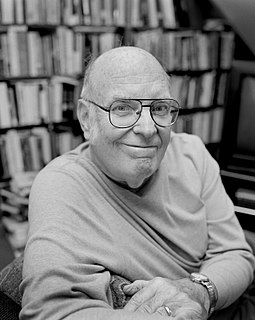A Quote by Billy Collins
A trouble with poetry is the presence of presumptuousness in poetry, the sense you get in a poem that the poet takes for granted an interest on the reader's part in the poet's autobiographical life, in the poet's memories, problems, difficulties and even minor perceptions. I try to presume that no one is interested in me. And I think experience bears that out. No one's interested in the experiences of a stranger - let's put it that way. And then you have difficulty combined with presumptuousness, which is the most dire trouble with poetry.
Quote Topics
Related Quotes
Another trouble with poetry - and I'm gonna stop the list at two - is the presence of presumptuousness in poetry, the sense you get in a poem that the poet takes for granted an interest on the reader's part in the poet's autobiographical life, in the poet's memories, problems, difficulties and even minor perceptions.
Poetry is probably the one field of writing in which it is a mistake to try to psych out editors. In fact, specific marketing advice can sometimes harm the novice poet by enticing him to pursue fashions. The poet's best hope is to sound like nobody else, The finest, most enduring poetry constructs a marketplace of its own.
Poetry is difficult, I mean interesting poetry, not confessional babble or emotive propaganda. Reading a new poet is discovering an entire world, what Stevens called a 'mundo' and it takes a lot of time to orientate oneself in such a world. What we have to learn to do then, as teachers and militants of a poetic insurgency, is to encourage people to learn to love the difficulty of poetry. I simply do not understand much of the poetry that I love.
Loneliness is necessary for pure poetry. When someone intrudes into the poet's life (and any sudden personal contact, whether in the bed or in the heart, is an intrusion) the poet loses his or her balance for a moment, slips into being what he or she is, uses his or her poetry as one would use money or sympathy. The person who writes the poetry emerges, tentatively, like a hermit crab from a conch shell. The poet, for that instant, ceases to be a dead person.
I wrote poetry for seven or eight years, maybe longer, before I could say I was a poet. If people asked, I'd say I wrote poetry; I wouldn't go further. I was in my mid- to late-thirties before I felt that I was a poet, which I think meant that I had begun to embody my poems in some way. I wasn't just a writer of them. Hard to say what, as a poet, my place in the world is. Some place probably between recognition and neglect.
My goals as an artist have nothing to do with speaking to an audience. I love to have a good time, but when it comes to poetry I'm not really interested in writing poetry that seeks to entertain or operate safely within the mainstream and, to be clear, I'm not disparaging the really phenomenal work that does - it's just not my interest as a poet.



































